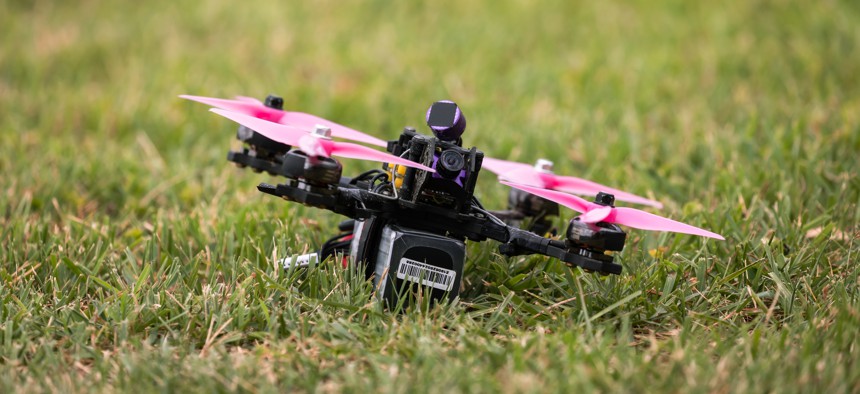State grounds Chinese-made drones over security concerns

Susumu Yoshioka/Getty Images
The rule bans Florida agencies from using drones manufactured by Chinese company DJI, a move that could have an immediate effect on law enforcement agencies in the state.
Florida agencies are now banned from using drones manufactured in certain foreign countries, including China, under an administrative rule that went into effect last week.
State, county, local and municipal governmental entities are prohibited from purchasing drones and other unmanned aerial systems manufactured by companies based in or owned by those the state deems a “foreign country of concern.” The rule means that agencies can no longer use drones manufactured by Chinese company DJI, manufacturer of the most widely used drone in the world, and agency drones must meet minimum cybersecurity standards.
Government agencies will be required to take several standard cybersecurity precautions when using approved drones, including that they can only connect to the internet “for purposes of command and control, coordination, or other communication to ground control stations or systems related to the mission of the Drone,” per the rule.
Command and control of the drone must also be secured and monitored continuously, and isolated from any networks where agency data is held. Drones are also prohibited from connecting with any mobile devices issued by government agencies or that connect to government networks, except when used for command and control.
Drones that transmit or collect data must encrypt it, while any data stored from those drones must be kept in the continental United States, according to the rule.
While the rule is designed to protect the state’s cybersecurity against what Gov. Ron DeSantis (R) has previously decried as “nefarious intentions” from China, Cuba, Russia, Iran, North Korea, Syria, or Venezuela, it could have an immediate effect closer to home for law enforcement agencies in the state.
One elected official reportedly said that police and other agencies have already spent around $200 million on DJI drone technology, and while departments have taken the Chinese drones out of circulation, they have reportedly found state-approved replacements to be less effective and more expensive.
State Sen. Tom Wright (R) has also accused the DeSantis administration of not providing any evidence that DJI drones pose a security risk, and he sponsored legislation to give police more time to comply with the rule, but it has not received a hearing. Other experts have said that national security risks from this sort of technology have not yet been truly proven and that in the meantime, states should follow the federal government’s lead on implementing foreign technology bans.
Separately, a bipartisan coalition of U.S. Senators have requested a federal investigation of any risks associated with DJI’s drones.
And it is not just drones that have caused concern among lawmakers keen to probe the links between technology used in U.S. critical infrastructure and the Chinese government. Last week, lawmakers on the House Committee on Homeland Security sent a letter to Homeland Security Secretary Alejandro Mayorkas expressing concerns about potential vulnerabilities in Chinese-made ship-to-shore cranes used at the nation’s maritime ports.
The letter notes that 80% of U.S. ports use cranes manufactured by ZPMC, which contain sensors that can keep track of containers’ origin and destination. The lawmakers said that the sensor data could then be used to monitor military shipments, something they said poses an “enormous threat to our military strategic competitive advantages.”






